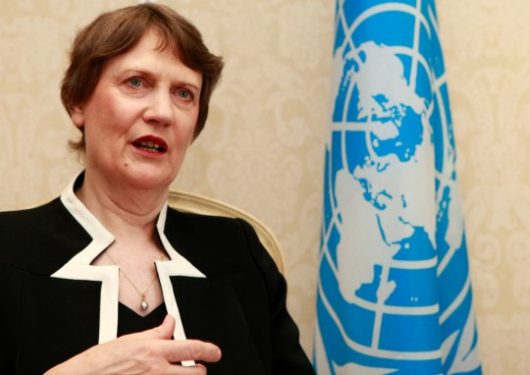UNDP to Shape 2030 Agenda Advancement

In a February 2016 meeting that marked the United Nations Development Program’s (UNDP) 50th anniversary, representatives of more than 120 countries, including Ministers and Heads of Government from over 80 U.N. Member States, gathered in New York’s General Assembly to decide the trajectory of the 2030 Sustainable Development Goals (SDGs).
According to the UNDP, the meeting had a clear agenda: to transform ideas into “actions and results.”
The Ministerial Meeting itinerary included several thematic subgroup debates that focused on implementation questions, derived from topics that included eradicating poverty; sustainable development; preventing violent conflict and building peaceful societies; managing risk and building resistance and financing the SDGs.
Opening the meeting with a speech, Helen Clark, Administrator of the United Nations Development Program, said that the UNDP’s fundamental purpose remains the same and is “more relevant than ever- that is, to support countries to eradicate poverty in a way which simultaneously reduces inequality and exclusion, while protecting the planet on which we all depend.”
She added that the 2030 Agenda will require increased preemption, receptiveness,and improvement on the part of the UNDP and that global cooperation is crucial to facilitating lasting development.
Emphasizing the need for global consensus, Clark said that meeting discussions “strongly suggest that there is a shared understanding of the road ahead for development and for UNDP as a trusted and strategic partner.”
Ministers and U.N. partners unveiled strategies to assist the UNDP in its pursuit of the 2030 Agenda. Clark suggested that analyses and proposals originating in discussions at the meeting will be used as a benchmark for the framework of future UNDP work as a global partner.
The UNDP, according to News Ghana, has programs in more than 170 countries and is one of the most influential anti-poverty organizations in the world.
The organization is known worldwide for its efforts to fight poverty and inequality through government partnerships. Established as the U.N.’s development center in 1966, the UNDP works with the word’s most vulnerable people to boost gender equality, enhance sustainable farming, improve the quality of health and education and combat climate change.
– Heidi Grossman
Sources: UNDP 1, UNDP 2, UNDP 3, News Ghana
